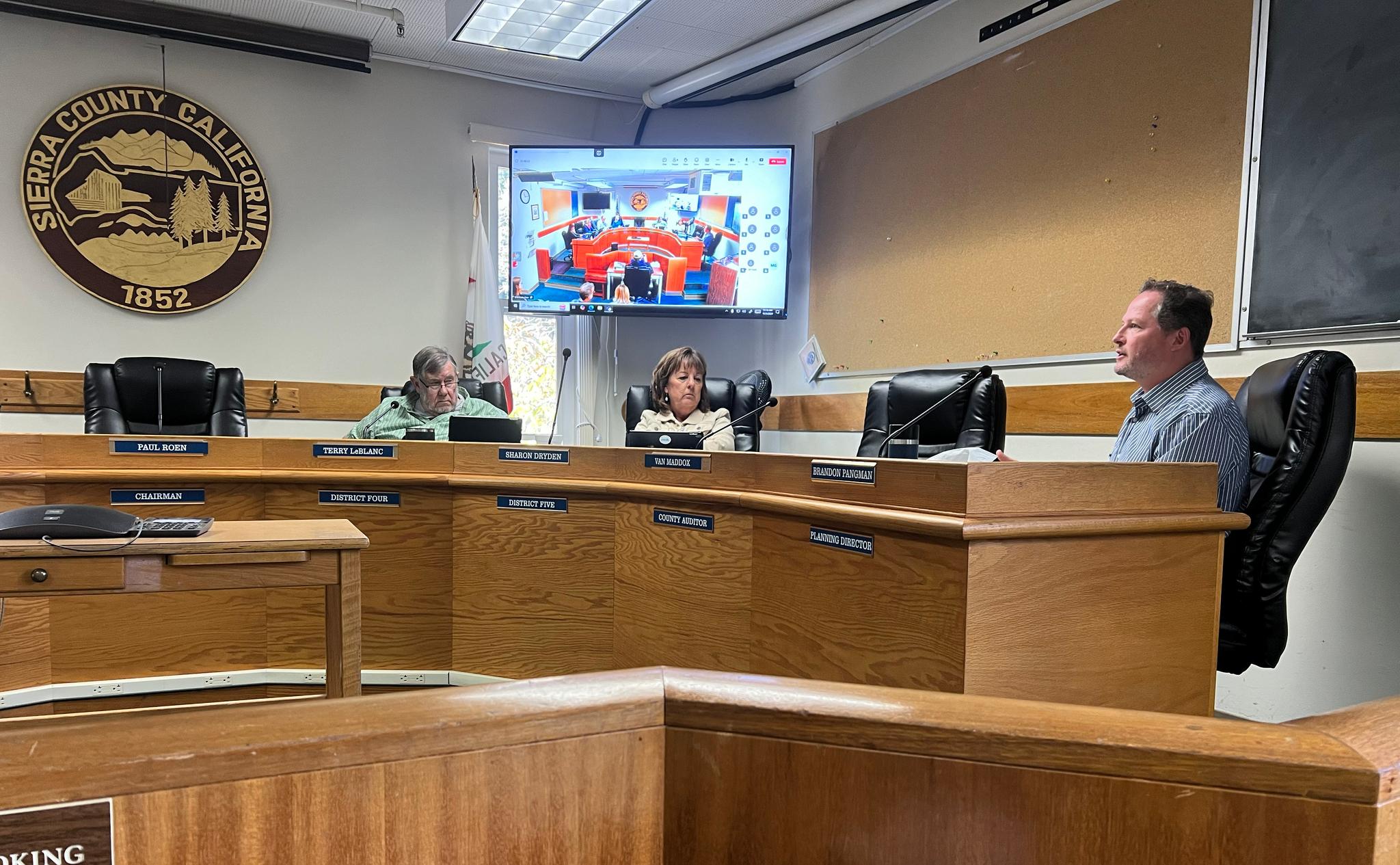Short Term Rental Ordinance Revision Passes
November 7, 2024

Planning Director Brandon Pangman explains changes made in the STR ordinance revision to Board members, including Terry LeBlanc (left) and Sharon Dryden (middle)
SIERRA COUNTY — Sierra County has been working on updating its Short-Term Rental Ordinance for over a year now. On Tuesday, another revision was brought before the Board for public comment and finally passed by 4 out of 5 members. Supervisor LeBlanc was the only no-vote. The new rules are expected to clear up some of the requirements for establishing a short-term rental (STR) property while adhering to the original intent of the ordinance – limiting the number of STRs to increase long-term rental opportunities and improve residents’ quality of life.
The issue that sent the STR ordinance revision back to the planning commission earlier in the year was the ability to transfer permits. Though supervisor Heuer was strongly for transference, most board members thought it better to have the planning commission suggest a compromise. The proposed compromise was not to allow STR permits to be transferred upon the sale of the house but to shorten the waiting period before a permit can be applied for from two years to one.
Supervisor Heuer, who strongly favors short-term rentals in general, offered arguments for permit transfer and against having a waiting period. She believes STRs contribute significantly and meaningfully to the local economy by increasing tourism, local business participation, and real estate investment. Due to strict California regulations, she does not believe that there are opportunities to build new hotels and motels in the county, so she views STRs as a stop-gap solution to increase accommodations at a lower investment cost.
Public comments came mostly from property owners looking to rent their homes. One comment came from someone with a property in a rural-residential zone, which is currently not on the list of zones where STRs are allowed. Another bought a property with her family primarily because of their love for the county, but they hope to subsidize that purchase by renting when out of town. All commenters believed that the economy would benefit from increased short-term rentals.
Pushback came from Supervisor Lee Adams, who has been generally critical of the short-term rental business model. He says that the ordinance was enacted not for economic reasons but to improve the quality of life of county residents. He does not believe that homes in residential zones should be sold as potential businesses, which could cause house prices to increase artificially. He also believes that allowing the transfer of permits would create a division between “haves and have-nots” and would be unfair to homeowners who may not have the resources to permit their homes.
Ultimately, no board members were perfectly satisfied with the compromise. Still, most agreed that the new revision was a step in the right direction, particularly in clearing up the permitting process and penalties for non-compliance. The only no vote came from Supervisor LeBlanc, who agreed with Supervisor Heuer that residences that have already been permitted should not have to stop renting for a year after the sale of the property.
Discussions will likely continue between board members and the planning commission over whether a better compromise exists. Adams suggested that he would rather scrap the waiting period altogether before allowing permit transfer, a solution Supervisor Heuer would likely strongly support if offered. That a revised ordinance should appear before the Board in the coming years is almost certain.
Featured Articles

Two Plead Guilty to Poaching and Animal Cruelty Charges →
December 30, 2025
Two men face penalties for illegal hunting activities in Sierra County.
Fish and Wildlife Plans to Collar More Deer, Elk, and Wolves →
December 30, 2025
DWR Conducts First Snow Survey of the 2025-2026 Season →
December 31, 2025
Storms Bring Heavy Rainfall and Local Disruptions →
December 22, 2025
Sierra Hardware Plans Extensive Repairs After Flood Damage →
December 8, 2025